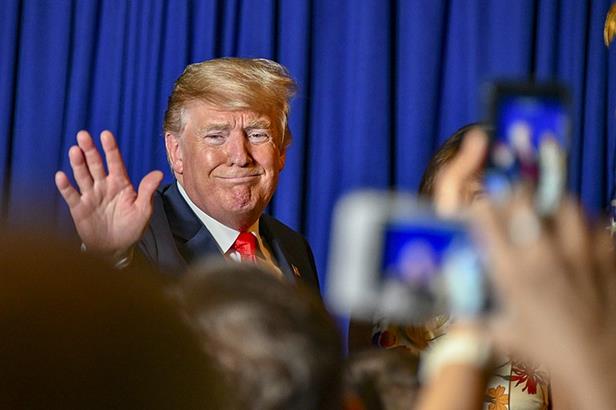Over the next few weeks President Donald Trump will have to wage the toughest battle of his political career so far. He will be under intense political and bureaucratic pressure to change his mind on the withdrawal of U.S. forces from Syria. Trump needs to resist that pressure both because the decision to withdraw is justified and because any retreat would fatally compromise his credibility as he approaches his third year in office.
Within his team Trump will neet to overcome resistance primarily from John Bolton and Mike Pompeo. “We’re not going to leave [Syria] as long as Iranian troops are outside Iranian borders and that includes Iranian proxies and militias,” Bolton declared on September 24. Two weeks later Pompeo referred to Kurdish YPG fighters as “great partners,” and reiterated that the Administration remains committed to “the removal of all Iranian and Iranian-backed forces” from Syria. Neither of them is likely to have undergone a massive change of heart in recent weeks, but they are likely to mask their opposition in the guise of temporary postponement and not sticking to “rigid timetables.” They will be supported by Congressional hawks (Graham, Corker, Inhofe, Rubio et al), but Trump needs to stick to his guns. When considering the successor to Jim Mattis he needs to look for a person “whose views are better aligned” with his own—which should exclude alleged current front-runners, General Jack Keane and Sen. Tom Cotton, R-Ark.
There is nothing to be gained from perpetuating the current, often dysfunctional process of formulating foreign policy choices, reaching decisions and implementing them. “Do we want to be there forever?” is a reasonable question, and every prospective Cabinet member should be asked. Continued presence of U.S. troops in Syria does not make strategic sense. An important yet neglected consideration is that delaying withdrawal would greatly complicate relations with Turkey, which have been improving lately: on December 18 the Administration announced a $3.5 billion arms sale to Turkey, including 80 Patriot missiles.
The Turks are determined to intensify operations east of the Euphrates regardless of Washington’s misgivings. For them the challenge presented by a putative Kurdish statelet in northern Syria is intolerable, and on this issue there is little difference between Erdogan and his secular foes. By contrast no vital American interest is at stake in Syria, and the policy of supporting Kurdish ambitions even at the cost of alienating Turkey has always been problematic. Since Erdogan is here to stay for many years to come, it should be terminated in favor of an attempt to reboot relations with Ankara on the basis of transactional realism.
Domestic restraints on the conduct of foreign policy are always present, but they must not be allowed to jeopardize the ability of the Administration to act as unitary actor in world affairs. As l’affaire Mattis reminds us, “we don’t elect presidents to have their subordinates stop them from implementing their policies. It is unacceptable for the president to be prevented from leading the nation by Cabinet members not on board with his policies.” President Trump should follow his instincts and disengage from the Middle Eastern quagmire. In doing so he will be supported by his base. The folks who voted for him know the true cost of perpetual wars far better than Trump’s “conservative” detractors.



Leave a Reply